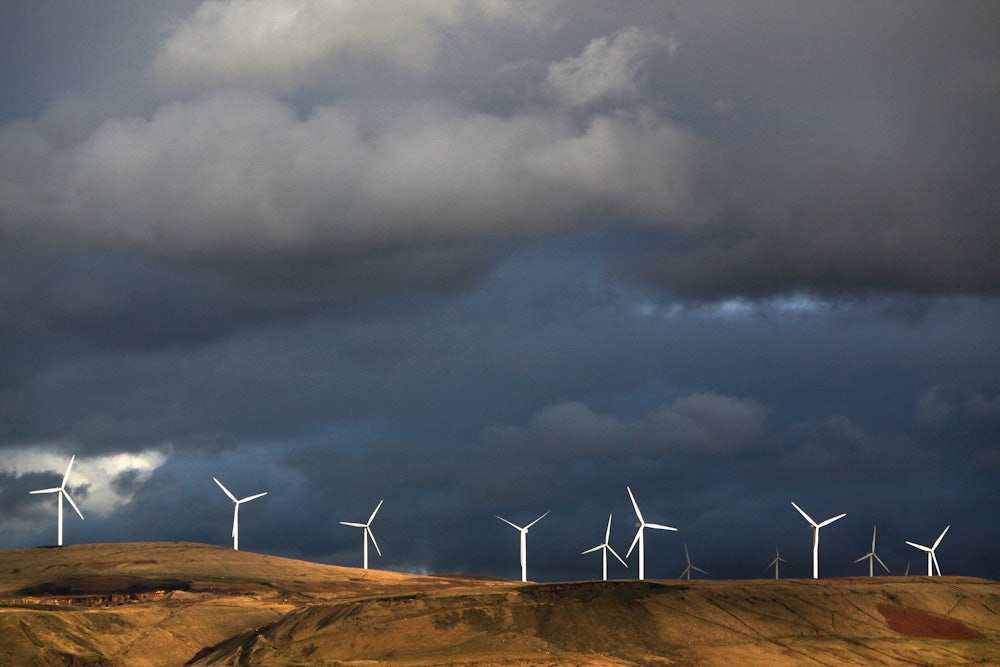That’s one of the key takeaways from the 2017 Global Carbon Budget, an annual report that “brings together scientists and climate data from around the world to develop the most complete picture available of global greenhouse gas emissions,” according to its authors.
The 32-year point comes from the generally agreed-upon (but sometimes disputed) idea that, to prevent irreversible negative impacts, global temperatures must be kept from rising 2℃ above pre-industrial levels. Humans have already warmed the world 1℃, so to prevent that extra degree “requires net zero global emissions soon after 2050,” the report’s authors say. In other words, by 2050, the amount of carbon released into the atmosphere across the world must match the amount being taken out of the atmosphere. So, along with reducing emissions, we have to remove existing carbon by using technologies like carbon capture and storage, reducing deforestation, or planting carbon forests. This is a difficult task, but not impossible.
But countries aren’t doing enough. According to the Global Carbon Budget, global greenhouse emissions from fossil fuels and other industries are expected to rise by 2 percent in 2017. This is disheartening news given that global carbon emissions were basically stable for the last three years, even as the global economy got stronger. For many, this stabilization was proof not only that humans don’t need a fossil fuel-based economy to prosper, but that carbon emissions were close to peaking. Eventually, carbon emissions would start falling every year.
The report shows that the peak is yet to come. But there’s still time to fix it. Former U.N. climate chief Christiana Figueres, who oversaw the negotiations that led to the Paris climate agreement, has argued that in order to remain under 2℃, “global emissions must peak before 2020 and then begin to rapidly decline.” The U.K.-based non-profit Energy and Climate Intelligence Unit says it’s possible to prevent the worst impacts of climate change if emissions peak in 2025; though that gets a bit too close for comfort. The nonprofit says it’s impossible to prevent 2℃ of warming if emissions peak closer to 2030.
“Soon it will be too late to shift course away from our failing trajectory, and time is running out,” 15,000 scientists in 184 countries warned in a letter published on Monday. “We must recognize, in our day-to-day lives and in our governing institutions, that Earth with all its life is our only home.”
